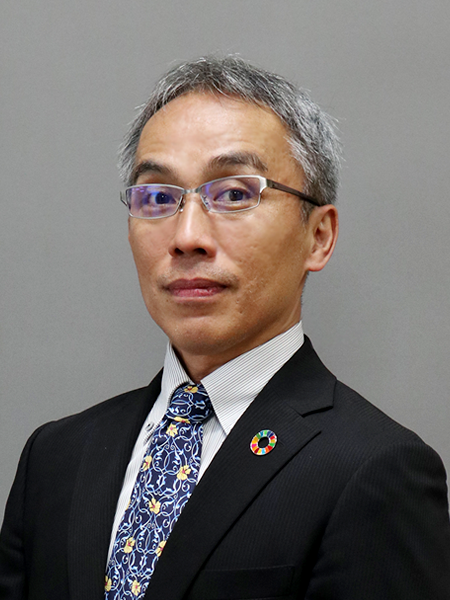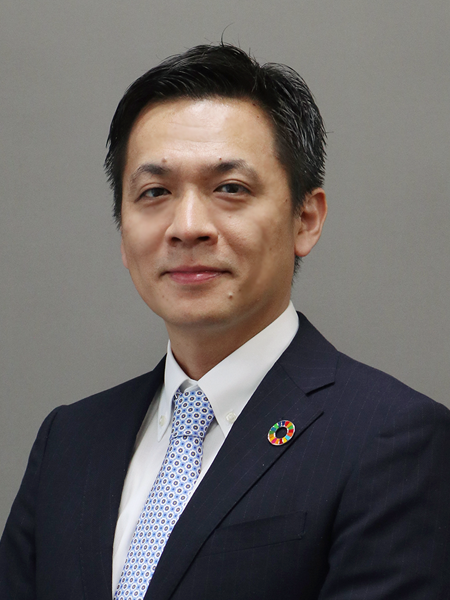17 July 2024
Trends in the Recruitment and Job Placement Market in Asia, April-June 2024
Amidst a broader economic slowdown, the number of white-collar job postings in Asia declined compared to the previous year. However, the demand for skilled professionals in emerging industries continues to grow.

JAC Recruitment, a leading global recruitment firm with a presence in 11 countries, has analysed recruitment market trends in Asian countries where JAC Group companies operate, for the second quarter of 2024 (April to June).
【JAC Recruitment Asia: Job Listing Comparison Report (Previous Quarter and YOY)】
| Change from previous period (Jan-Mar) | Year-on-year comparison | |
| Singapore | 85% | 79% |
| Malaysia | 88% | 100% |
| Thailand | 86% | 71% |
| Indonesia | 85% | 77% |
| Vietnam | 92% | 75% |
| Korea | 104% | 81% |
| India | 157% | 138% |
| Japan(*) | 99% | 91% |
*Recruitment Related to Overseas Operations of Japanese Companies
Note: The number of job openings in each Asian country may fluctuate due to deliberate strategies implemented by individual Asian companies (such as focusing on high-paying job openings or specialist positions). Therefore, changes in the number of job openings in each Asian country do not directly reflect the performance of each company.
Overall Summary
While the economies of Asian countries continue to grow, driven by robust demand for exports to North America and increased foreign direct investment, many countries have experienced a slowdown in growth rates compared to 2023. Consequently, the number of new job openings has declined in most Asian countries, with the exception of India.
Given the significant influence of major global powers on politics and economies, it is essential to remain vigilant regarding international developments. However, as countries seek to diversify their supply chains away from China, foreign direct investment is expected to continue driving economic growth, especially in ASEAN countries.
Japanese companies are increasingly shifting from a Japan-centric business model to a more locally focused approach, aiming to capture the expanding domestic markets through increased domestic investment. This trend is reflected in the types of job openings they are creating. The competition for top local talent is intensifying.
<Summary>
| Singapore | The Current State of the COMPASS System: Advantages and Disadvantages for Singaporean and Foreign Professionals |
| Malaysia | From Credential-based to Skill-based Hiring |
| Thailand | Japanese Automakers Cease Production; Stricter Loan Screenings Halt Consumer Activity |
| Indonesia | Accelerating Investment Attraction from Developed Countries Ahead of Government Transition |
| Vietnam | Economic Recovery Expected to Drive Further Growth in the Second Half |
| Korea | 2024 Economic Growth Forecast Revised Upward; Accelerated Investment in Generative AI and Semiconductors |
| India | Hiring Activities Tend to Lengthen Due to a Seller's Market |
| Japan | Strong Demand for Immediate Impact Talent in Growing Sectors; Wage Increases Accelerate Workforce Mobility |
Singapore: The Current State of the COMPASS System: Advantages and Disadvantages for Singaporean and Foreign Professionals
Number of job offers YOY:79%
Number of job openings YOY (past 3 years):
| 2021 | 2022 | 2023 | 2024 | ||||||||
| Jul - Sep | Oct - Dec | Jan - Mar | Apr - Jun | Jul - Sep | Oct - Dec | Jan - Mar | Apr - Jun | Jul - Sep | Oct - Dec | Jan - Mar | Apr - Jun |
| 112% | 90% | 151% | 96% | 156% | 68% | 157% | 59% | 95% | 91% | 108% | 85% |
<Market Overview in Singapore>
Singapore's economy displayed remarkable resilience in the second quarter of 2024 (April-June), exceeding expectations with a GDP growth rate of 3.2% compared to the previous year. The unemployment rate remained low throughout this period. The manufacturing, finance and insurance industry thrived while the tourism industry's recovery stalled due to a significant decline in Chinese visitors. The retail sales stagnated amidst rising inflation. Despite the slowdown, the government continues to stimulate the economy through fiscal and monetary policies.
Looking ahead, concerns about the global economic slowdown have heightened uncertainty, with fears centred on the economic downturns in the United States and China, alongside geopolitical risks. The government is preparing for these risks and remains committed to initiatives aimed at stabilising the economy. In efforts to ensure employment stability for Singaporeans, regulatory measures on foreign employment, such as tightening work visa policies, are being upheld.
<Local Hiring Trends among Companies in Singapore>
Since the introduction of the new visa acquisition criteria system, COMPASS, in September last year, companies with a high ratio of Japanese employees have found it increasingly difficult to obtain work visas. Consequently, job opportunities for Japanese individuals requiring work visas have decreased. Major companies, affected by COMPASS, are actively hiring Singaporean personnel to reduce the proportion of Japanese employees.
The extension of work visas for currently employed Japanese staff and the issuance of new Employment Passes (EP) for replacement expatriates dispatched from Japan are still permitted. However, there is an increasing trend among companies to limit locally hired positions to Singaporeans and permanent residents. Small and medium-sized enterprises with fewer than 25 total staff members, which automatically receive 20 points in the COMPASS corporate evaluation criteria for diversity of nationalities and the employment ratio of local employees, continue to offer some job opportunities for Japanese candidates. Nonetheless, these opportunities are limited in number and scope.
<Job-Seeker Trends in Singapore>
In the April-June quarter of 2024, the Singapore job market saw a divergence in job seeker trends amid global economic slowdown concerns. Singaporeans and permanent residents actively sought job information, exploring their market value and engaging in job searches aimed at career advancement, salary increases, and improved work-life balance despite the economic uncertainty.
Conversely, the situation remained challenging for foreign job seekers. An increasing number faced difficulties in renewing visas and obtaining new work visas. Additionally, some were forced to seek new employment due to the relocation of their departments overseas.

Managing Director of JAC Recruitment Singapore
Fahad Farook
■JAC Recruitment Singapore Overview
https://www.jacgroup.com/en/locations/country/singapore
■JAC Recruitment Singapore Website
https://www.jac-recruitment.sg/
Malaysia: From Credential-based to Skill-based Hiring
Number of job offers YOY:100%
Number of job openings YOY (past 3 years):
| 2021 | 2022 | 2023 | 2024 | ||||||||
| Jul - Sep | Oct - Dec | Jan - Mar | Apr - Jun | Jul - Sep | Oct - Dec | Jan - Mar | Apr - Jun | Jul - Sep | Oct - Dec | Jan - Mar | Apr - Jun |
| 95% | 104% | 105% | 105% | 131% | 61% | 132% | 78% | 111% | 87% | 118% | 88% |
<Market Overview in Malaysia>
Despite global economic challenges, the Malaysian economy has demonstrated resilience, maintaining a high GDP growth rate in 2024. This momentum has been supported by a favourable labour market environment, a robust financial sector, and high national savings. While the manufacturing sector has not seen significant changes, signs of improvement are beginning to emerge.
<Local Hiring Trends among Companies in Malaysia>
In Malaysia, since the government announced its goal in 2005 to reduce greenhouse gas emissions by 45% by 2030 and achieve carbon neutrality by 2050, various incentives related to renewable energy have been introduced. As a result, more companies are integrating corporate social responsibility (CSR) into their hiring strategies. Additionally, there is active investment in data centres, digital transformation, and automation technologies. Skills related to artificial intelligence (AI) and automation are in high demand, prompting companies to shift their focus from traditional qualifications to specific skill sets.
<Job-Seeker Trends in Malaysia>
Competitive benefits, work-life balance, and a supportive workplace environment are key factors for job seekers. Remote work is expected to continue as an increasing option. As skills are becoming more valued over traditional qualifications, skill enhancement programs play a crucial role in bridging the skill gap and strengthening the workforce. Job seekers highly regard companies that offer such initiatives. Organisations that prioritise improving the overall employee experience are establishing a positive brand reputation.

JAC Recruitment Malaysia Managing Director
Nick Taylor
■JAC Recruitment Malaysia Overview
https://www.jacgroup.com/en/locations/country/malaysia
■JAC Recruitment Malaysia Website
https://www.jac-recruitment.my/
Thailand: Japanese Automakers Cease Production; Stricter Loan Screenings Halt Consumer Activity
Number of job offers YOY:71%
Number of job openings YOY (past 3 years):
| 2021 | 2022 | 2023 | 2024 | ||||||||
| Jul - Sep | Oct - Dec | Jan - Mar | Apr - Jun | Jul - Sep | Oct - Dec | Jan - Mar | Apr - Jun | Jul - Sep | Oct - Dec | Jan - Mar | Apr - Jun |
| 93% | 90% | 154% | 80% | 143% | 57% | 205% | 82% | 97% | 79% | 108% | 86% |
<Market Overview in Thailand>
In the January-March 2024 quarter, Thailand's GDP grew by 1.5%, down from the previous quarter's growth rate of 1.7%.
According to the ASEAN Automotive Federation (AAF), both vehicle sales and production from January to April fell by double digits compared to the same period last year, marking the ninth consecutive month of year-on-year decline as of April. In response to these trends, Subaru and Suzuki have announced they will cease production in Thailand. They plan to shift to importing and selling vehicles from Japan and other overseas locations.
<Local Hiring Trends among Companies in Thailand>
Due to the Songkran holidays in April and the long holidays in May, the hiring pace during this period has slowed down as usual. The rise in personal debt has led to stricter loan screenings, negatively impacting domestic sales of cars and home appliances. Under these circumstances, some companies have temporarily halted hiring for expansion purposes. However, there is still strong demand for hiring highly experienced and skilled personnel in high-level positions (MD/GM/production site managers) to replace expatriates. This hiring need is expected to continue.
Additionally, there are still companies planning new establishments in Thailand, which is expected to continue driving recruitment requests.
<Job-Seeker Trends in Thailand>
The number of registered job seekers remains almost the same as the same period last year. Due to the relative ease of obtaining work visas compared to other Southeast Asian countries, rising wages due to increased living costs, and the recent depreciation of the yen, interest in relocating to Thailand for work has grown among job seekers.
The demand for immediate contributors remains unchanged, with many job seekers leveraging their industry and job experience for new positions. There are still few job openings for applicants without prior experience.

JAC Recruitment Thailand Managing Director
Gavin Henshaw
■JAC Recruitment Thailand Overview
https://www.jacgroup.com/en/locations/country/thailand
■JAC Recruitment Thailand Website
https://www.jac-recruitment.co.th/
Indonesia: Accelerating Investment Attraction from Developed Countries Ahead of Government Transition
Number of job offers YOY:77%
Number of job openings YOY (past 3 years):
| 2021 | 2022 | 2023 | 2024 | ||||||||
| Jul - Sep | Oct - Dec | Jan - Mar | Apr - Jun | Jul - Sep | Oct - Dec | Jan - Mar | Apr - Jun | Jul - Sep | Oct - Dec | Jan - Mar | Apr - Jun |
| 83% | 107% | 138% | 101% | 61% | 129% | 85% | 148% | 64% | 117% | 122% | 85% |
<Market Overview in Indonesia>
Following the results of the presidential election in November 2023, the administration will transition from the current President Joko Widodo to Prabowo Subianto in October 2024. In an effort to accelerate the attraction of foreign investment before this transition, Indonesia is hastening its bid to join the Organisation for Economic Co-operation and Development (OECD). If Indonesia succeeds in becoming a member, it would be the first ASEAN country to do so, which is expected to boost the GDP and improve investment regulations, making the country more attractive to foreign investors.
<Local Hiring Trends among Companies in Indonesia>
The IT, FMCG, logistics, and energy sectors continue to perform well and are strengthening their hiring activities. In contrast, the manufacturing sector shows a mixed approach, with some companies actively recruiting and others holding back. The increase in minimum wages in industrial areas near Jakarta is putting pressure on company management, forcing many businesses to significantly alter their management strategies.
Regarding the production of new products, such as electric vehicles (EVs), factories are often being built in regions with lower minimum wages. New industrial parks operated by local Indonesian companies are also expanding into these areas.
Apart from the currently thriving industries, many companies are expected to carefully assess the situation after the government transition in October 2024 before making further management decisions.
<Job-Seeker Trends in Indonesia>
Following the distribution of religious bonuses in April, Indonesian job seekers have become more active. Most job seekers are junior employees in their late 20s to early 30s, driven by Indonesia's robust economy and seeking better salaries and benefits. While the number of registered managerial candidates in their late 30s and older is high, they are taking a cautious approach, anticipating changes after the government transition in October.
Among Japanese job seekers, the majority are in their late 20s and late 50s. Many are not limiting their job search to Indonesia alone but are exploring opportunities across ASEAN countries and undergoing selection processes for positions in multiple countries simultaneously.

JAC Recruitment Indonesia Director
Olivia Hussy
■JAC Recruitment Indonesia Overview
https://www.jacgroup.com/en/locations/country/indonesia
■JAC Recruitment Indonesia Website
https://www.jac-recruitment.co.id/
Vietnam: Economic Recovery Expected to Drive Further Growth in the Second Half
Number of job offers YOY:75%
Number of job openings YOY (past 3 years):
| 2021 | 2022 | 2023 | 2024 | ||||||||
| Jul - Sep | Oct - Dec | Jan - Mar | Apr - Jun | Jul - Sep | Oct - Dec | Jan - Mar | Apr - Jun | Jul - Sep | Oct - Dec | Jan - Mar | Apr - Jun |
| 76% | 60% | 248% | 111% | 84% | 67% | 137% | 119% | 105% | 91% | 86% | 92% |
<Market Overview in Vietnam>
In Vietnam, a new state president, the second-highest ranking official according to the constitution, has been elected. This comes amid a series of resignations within the top leadership, making future developments particularly noteworthy.
According to data released by the General Statistics Office of Vietnam, the GDP growth rate for the first half of 2024 was 6.42%, significantly higher than the 3.72% growth recorded in the same period last year. This indicates a strong recovery trend in the Vietnamese economy. The GDP growth for the April-June quarter was 6.93%, the second-highest increase in the past decade. Foreign direct investment (FDI) has also risen, with Japan ranking as the second-largest investor after Singapore. This underscores the continued high interest of Japanese investors in the Vietnamese market.
<Local Hiring Trends among Companies in Vietnam>
The unemployment rate for the labour force in the first half of the year was 2.27%, showing a recovery in the labour market compared to the 3.72% recorded during the COVID-19 pandemic in the third quarter of 2021. Most labour demand is in labour-intensive industries, and the increase in production orders suggests that the manufacturing sector is gradually emerging from the global recession it faced last year.
The April-June period typically sees an increase in job openings due to higher worker mobility, and this trend is evident again this year. However, an increase in companies looking to hire means more competition for talent. Therefore, companies need to highlight their attractiveness during interviews and selection processes to appeal to job seekers.
<Job-Seeker Trends in Vietnam>
As usual, there is high mobility among job seekers, with many candidates seeking new opportunities. However, with the increasing options of freelancing and entrepreneurship, candidates seem to be more cautious in their job selection. Given the high learning enthusiasm among Vietnamese people, effectively communicating the benefits of working with the company, such as education and training opportunities, will be key to successful recruitment.
The number of Japanese job seekers has increased in the April-June period, potentially benefiting companies aiming for localization.

JAC Recruitment Vietnam Regional Director
Thu Ha Nguyen
■JAC Recruitment Vietnam Overview
https://www.jacgroup.com/en/locations/country/vietnam
■JAC Recruitment Vietnam Website
https://www.jac-recruitment.vn
Korea: 2024 Economic Growth Forecast Revised Upward; Accelerated Investment in Generative AI and Semiconductors
Number of job offers YOY:81%
Number of job openings YOY (past 3 years):
| 2021 | 2022 | 2023 | 2024 | ||||||||
| Jul - Sep | Oct - Dec | Jan - Mar | Apr - Jun | Jul - Sep | Oct - Dec | Jan - Mar | Apr - Jun | Jul - Sep | Oct - Dec | Jan - Mar | Apr - Jun |
| 88% | 117% | 90% | 96% | 84% | 125% | 104% | 73% | 169% | 60% | 76% | 104% |
<Market Overview in Korea>
In the April-June quarter, SK Hynix revised its performance outlook upward due to the generative AI boom. The company plans to invest 12 trillion yen primarily in the HBM (High Bandwidth Memory) sector by 2028, indicating strong growth. Samsung unveiled its foundry process roadmap, aiming to operate factories using GAA (Gate-All-Around) technology. However, overall economic sentiment remains cautious, with South Korea's employment market facing significant challenges. According to the Ministry of Employment and Labor, the number of regular employment insurance subscribers in their 40s and under 29 continues to decline year-on-year each month. From January to April this year, the scale of unpaid wages increased by about 40% compared to the same period last year. The rapid decline in birth rates and the burden of sharply increased minimum wages have strained many companies. In response, the government has established the Ministry of Population Strategy Planning, which includes measures to combat low birth rates.
<Local Hiring Trends among Companies in Korea>
In the April-June quarter, demand for engineers in generative AI-related fields, particularly HBM, surged. With the sector performing well, the need for increased staff in the initial investment phase also remains high. Japanese companies are actively seeking Japanese-speaking candidates, but the shortage of young talent continues to make recruitment challenging. Compared to the automotive and secondary battery industries, the semiconductor and generative AI sectors are expected to remain strong over the next few years, with expansion plans for hiring already in discussion.
<Job-Seeker Trends in Korea>
The semiconductor industry outshone the automotive sector in the April-June quarter. There has been a noticeable increase in demand for sales personnel with semiconductor industry experience, leading to fierce competition and an uptick in candidates seeking better conditions. Japanese companies have started to adjust their offers to stay competitive in the hiring market, although disparities remain between those that have increased their conditions and those that have not. Younger candidates, however, are placing a high value on quality of life and are less inclined to pursue sales positions actively.

JAC Recruitment Korea Managing Director
Masashi Kato
■JAC Recruitment Korea Overview
https://www.jacgroup.com/en/locations/country/korea
■JAC Recruitment Korea Website
https://www.jac-recruitment.kr/en
India: Hiring Activities Tend to Lengthen Due to a Seller's Market
Number of job offers YOY:138%
Number of job openings YOY (past 3 years):
| 2021 | 2022 | 2023 | 2024 | ||||||||
| Jul - Sep | Oct - Dec | Jan - Mar | Apr - Jun | Jul - Sep | Oct - Dec | Jan - Mar | Apr - Jun | Jul - Sep | Oct - Dec | Jan - Mar | Apr - Jun |
| 214% | 114% | 71% | 121% | 111% | 107% | 139% | 109% | 101% | 79% | 110% | 157% |
<Market Overview in India>
In April 2024, India's general elections, held every five years, were conducted, involving the participation of 1.4 billion citizens, making it a grand event. The incumbent Bharatiya Janata Party (BJP)-led coalition maintained its majority, securing Prime Minister Modi a third consecutive term. While the economy is improving, continuing the "Make in India" initiative and creating jobs remains a significant challenge.
<Local Hiring Trends among Companies in India>
With Prime Minister Modi's re-election, India's economic growth rate is expected to steadily approach 8%. The manufacturing sector, in particular, is seeing an upward trend in hiring, driven by increased direct investment and a robust economy. The rise in new market entries and factory expansions has led to the creation of additional manufacturing lines and organisational strengthening, resulting in noticeable recruitment activity.
However, following the annual salary increment period, many companies face challenges as employees leave in pursuit of higher salaries elsewhere. This has forced companies to engage in recruitment activities not just for expansion but also to replace departing employees, leading to business disruptions in some cases.
<Job-Seeker Trends in India>
In the local hiring market, candidates become more active in job searching after the April evaluation period. This is a challenging time for companies as candidates compare their current salary increments with those offered by potential employers, seeking better conditions.
For Japanese job seekers, the number considering overseas employment has increased compared to the previous year. However, their focus is not solely on India; they are also exploring other countries, carefully evaluating salaries and the experiences they can gain from working abroad. This thoughtful approach means they take their time to find a satisfactory job opportunity.

JAC Recruitment India Managing Director
Kazuo Komaki
■JAC Recruitment India Overview
https://www.jacgroup.com/en/locations/country/india
■JAC Recruitment India Website
https://www.jac-recruitment.in
Japan: Strong Demand for Immediate Impact Talent in Growing Sectors; Wage Increases Accelerate Workforce Mobility
Number of job offers YOY:91%
Number of job openings YOY (past 3 years):
| 2021 | 2022 | 2023 | 2024 | ||||||||
| Jul - Sep | Oct - Dec | Jan - Mar | Apr - Jun | Jul - Sep | Oct - Dec | Jan - Mar | Apr - Jun | Jul - Sep | Oct - Dec | Jan - Mar | Apr - Jun |
| 87% | 107% | 114% | 99% | 112% | 100% | 119% | 100% | 88% | 95% | 109% | 99% |
<Market Overview in Japan>
Domestically, capital investment in the manufacturing sector is active, and the transfer of increased costs due to inflation has progressed, leading to generally favorable business sentiment, especially among large manufacturers. Although the Nikkei 225 fell in April due to global stock market declines following the diminished expectations of a U.S. interest rate cut, it subsequently rebounded and was approaching 40,000 yen by the end of June.
The exchange rate depreciated from 151 yen per dollar at the beginning of the fiscal year (April 1) to over 160 yen by the end of June. This yen depreciation led to a 13% year-over-year increase in export value in May, although the rising import costs of petroleum-related products raise concerns about inflationary impacts.
Additionally, temporary production halts due to the discovery of irregularities among automobile manufacturers and chronic labour shortages causing delays in construction and logistics are negative factors for the economy that warrant close monitoring.
<Local Hiring Trends among Companies in Japan>
In May 2024, the active job openings-to-applicants ratio (excluding part-time jobs) was 1.19, down 0.12 points from 1.31 in February. This decrease is attributed to workforce reductions by some large companies and wage revisions across various firms, leading to an increase in job seekers aiming for better conditions, while small and medium-sized enterprises, unable to pass on costs, are holding back on hiring.
The number of new job applications submitted to our company (for Japanese overseas business personnel) from April to June remained flat compared to the previous quarter at 99%. Large companies, including automakers and their primary suppliers, have posted job openings related to new energy vehicles. Companies dealing with materials for automobiles and semiconductors have also posted various job openings, including overseas sales, production, quality control, and process engineering positions. However, the total number of job openings from small and medium-sized enterprises continues to show no growth.
Additionally, there is active recruitment for global human resources management roles aimed at globalising organisations, investor relations (IR) roles to secure funding from overseas institutional investors, and positions to strengthen governance at overseas bases, such as audit and ERP (Enterprise Resource Planning) implementation personnel.
<Job-Seeker Trends in Japan>
The number of new job seekers (registered with overseas work experience) from April to June increased significantly, up 123% compared to the same period last year. The increase in workforce mobility is being encouraged by various media reports and advertisements, the growing percentage of people who have increased their annual income through job changes, and companies actively publicising their revised compensation systems, benefits, and work styles to attract external talent. As a result, interest and motivation among individuals regarding job changes are rising.

JAC Recruitment Overseas Expansion Support Office Chief Analyst
Kenji Sahara
■JAC Recruitment Overview
https://www.jacgroup.com/en/locations/country/japan
■JAC Recruitment Website
https://www.jac-recruitment.jp













